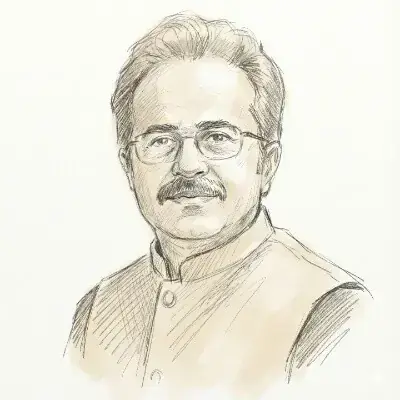
• Justice Mansoor Shah was poised to become CJP before 26th amendment, with Justice Akhtar being second in line
• Govt attempts to coax PTI remain unfruitful after it announces boycott of parliamentary panel’s proceedings
• Special committee endorses nomination by 8-1, with JUI-F representative voting for Justice Shah
ISLAMABAD: Justice Yahya Afridi, the third judge on the SC seniority list (excluding the incumbent CJP), was nominated as the chief justice of Pakistan on Tuesday after a newly formed parliamentary panel comprising government and opposition members approved his name out of a three-member panel, with a two-thirds majority.
The late-night decision — announced by Law Minister Azam Nazeer Tarar — was taken during an in-camera meeting of the special panel held at Parliament House, with the PTI staying away from the proceedings to protest the constitutional amendments that gave birth to the committee.
Only a day earlier, the PTI had shared the names of its lawmakers for the panel at the request of the National Assembly Secretariat.
In the absence of the PTI, only nine members met. Out of them, eight voted for Justice Afridi, while the lone voice in support of senior puisne judge Mansoor Ali Shah was from JUI-F leader Kamran Murtaza, sources told Dawn.
They said the committee will send its report to the NA speaker who will then relay it to the prime minister for approval, which is expected today (Wednesday).
Khawaja Asif, Ahsan Iqbal, Shaista Pervaiz, Raja Pervez Ashraf, Syed Naveed Qamar, Rana Ansar, Farooq H. Naek, Azam Nazeer Tarar and Kamran Murtaza participated in the meeting.
PTI-linked members Barrister Gohar Ali Khan, Hamid Raza, and Barrister Syed Ali Zafar boycotted the panel’s proceedings.
Initially, the committee was slated to convene at 4pm and a large number of journalists had arrived at the venue — the Constitution Room in Parliament House — to cover the proceedings even before the members.
The meeting started an hour later, but proceedings were quickly halted and Law Minister Tarar told media persons that the committee would convene at 8:30pm, since the PTI and the Sunni Ittehad Council’s members were not in attendance.
The PTI-linked lawmakers did not join the proceedings of the parliamentary committee, despite efforts by senior political leaders to bring them to the table.
A sub-committee, consisting of political heavyweights Ahsan Iqbal, Rana Ansar, Raja Pervez Ashraf, and Kamran Murtaza, was tasked with persuading the PTI lawmakers to join the discussions.
The sub-committee immediately requested a meeting with Speaker Sardar Ayaz Sadiq, which took place in his chamber.
Barrister Gohar Ali Khan attended the meeting. Despite appeals from the speaker and sub-committee members, Barrister Gohar stated that their political committee had reached a firm decision not to participate in the committee’s meetings.
After news of the committee’s decision became public, the Sindh High Court Bar Association released a statement welcoming the nomination of Justice Afridi.
Published in Dawn, October 23rd, 2024


































